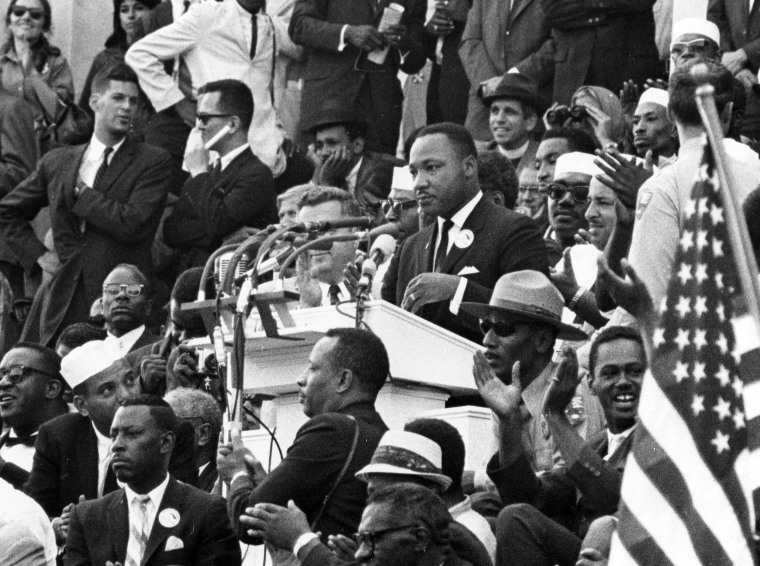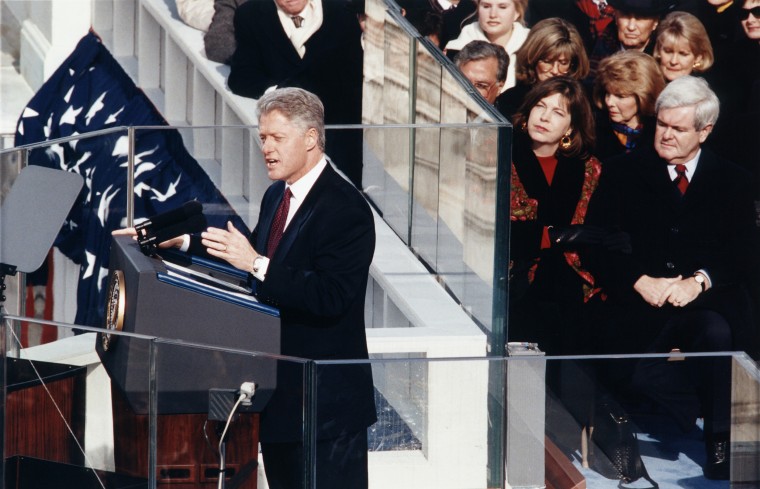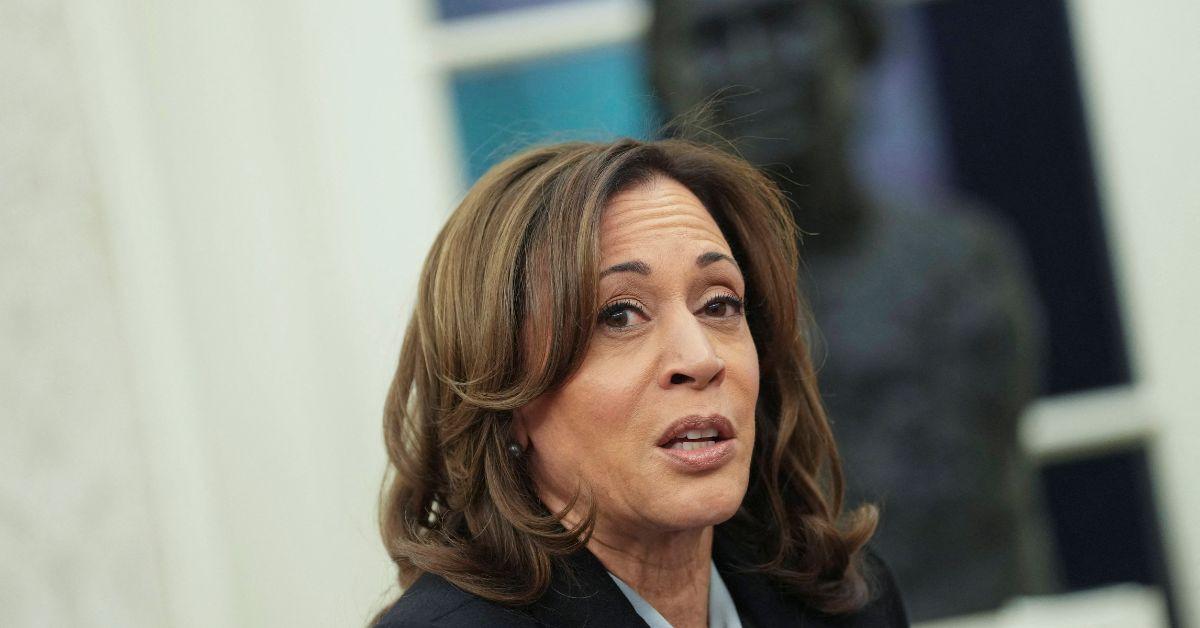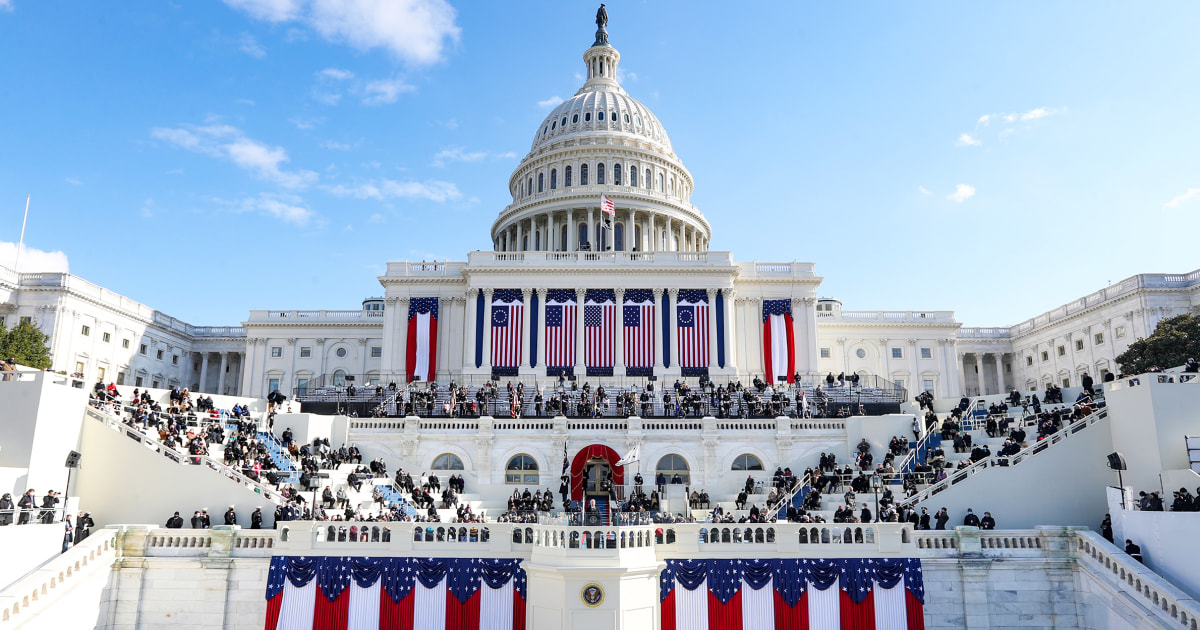Every four years on January 20, a newly-elected president is sworn into office on what’s known as Inauguration Day in a tradition that’s been observed since 1789.
Presidential elections occur every four years, on the first Tuesday in November, when U.S. citizens cast their votes for their candidate of choice. The last five elections have taken place in 2008, 2012, 2016, 2020 and 2024. The next presidential election takes place on Nov. 7, 2028.
After the election, the votes are tallied, then certified by Congress on Jan. 6. Two weeks later, on Jan. 20, the President-elect, along with the Vice President-elect are sworn in during a ceremony held at the U.S. Capitol building in Washington D.C.
While inaugurations can vary from president to president, Inauguration Day events usually include a processional to the Capitol, a swearing in of the Vice President-elect followed by the President-elect’s swearing-in ceremony, then an inaugural address delivered by the president.
Once finished, the outgoing president and first lady leave the U.S. Capitol in a ceremonial departure and the newly-sworn-in president participates in a signing ceremony held in the President’s Room, located inside the Capitol building.
After the signing, the president, vice president and guests attend an inaugural luncheon. When they’re done, the newly-elected officials go on a ceremonial parade from the Capitol to the White House, where they view a military procession.
The day often ends with an official Inauguration Ball, a formal event that celebrates the incoming president and includes music, food and dancing.
Learn more about Inauguration Day 2025 and what makes this year so unique from past inaugurations.
When is Inauguration Day 2025?
When a new commander-in-chief is elected, they are sworn in during an inauguration ceremony on Jan. 20, unless the date falls on a Sunday, in which case, it is observed on Monday, Jan. 21.
On Nov. 5, 2024, President-elect, Donald Trump, defeated Vice President Kamala Harris to become the 47th President of the United States.
On Jan. 6, the vote was certified, and on Monday, Jan. 20, President-elect Donald Trump, along with Vice President-elect JD Vance, will be sworn in on the West Front of the U.S. Capitol during the 60th Inaugural Ceremony.
The theme of 2025’s inauguration is “Our Enduring Democracy: A Constitutional Promise.”
What time does the inauguration begin?
The 20th Amendment of the U.S. Constitution states that “the terms of the President and the Vice President shall end at noon on the 20th day of January.”
Abiding by that edict, President-elect Trump will be sworn into office at approximately 12 p.m. ET on Monday, Jan. 20. Typically, the chief justice of the U.S. Supreme Court administers the oath of office. The current chief justice is John G. Roberts, Jr., who is expected to swear in President-elect Trump.
Since 1789, when George Washington took office, U.S. presidents have placed their hand on a bible and recited the following Inaugural Oath:
“I do solemnly swear (or affirm) that I will faithfully execute the office of the President of the United States, and will to the best of my ability, preserve, protect and defend the Constitution of the United States.”
What makes Inauguration Day 2025 so unique?

In 1983, President Ronald Reagan signed a bill designating the third Monday in January as a federal holiday in recognition of the life and achievements of civil rights leader Martin Luther King, Jr., whose birthday is on Jan. 15. Typically, Martin Luther King Jr. Day falls anywhere from Jan. 15 to Jan. 20.
In 2025, the January holiday lands on Monday, Jan. 20 — the same day as Inauguration Day.

The last time the two events coincided was 28 years ago on Jan. 20 1997, when President Bill Clinton was inaugurated after winning the 1996 election against Senator Bob Dole. The calendar quirk won’t occur again until 2053.
Inauguration Day facts
Inauguration Day 2025 isn’t the only year to feature a unique merging of two significant dates. In fact, there have been plenty of interesting inauguration facts through the years. See below for some notable Inauguration Day moments in history.
- In 2001, President George H.W. Bush became the first former president to see his son sworn in as George W. Bush took the oath of office.
- Back in 1977, President Gerald R. Ford left Jimmy Carter’s inauguration via helicopter, becoming the first outgoing president to ever do so.
- In 1961, Robert Frost became the first poet to speak at an inauguration after participating in John F. Kennedy’s official ceremony. Expected to recite “Dedication,” a poem Frost wrote in honor of the occasion, the poet pivoted when sun glare prevented him from seeing the words and instead recited “The Gift Outright,” from memory.
- Harry S. Truman’s inauguration in 1949 was the very first to be televised
- Truman’s predecessor, Franklin D. Roosevelt, was the first U.S. president to take the oath of office for a third term.
- In 1923, Calvin Coolidge was given the oath of office by his father at their Vermont homestead after the sitting president, Warren Harding, died of a heart attack.
- Other than being the first U.S. president, George Washington holds another inauguration record: During his second inauguration in 1793, George Washington delivered his speech in just 135 words, making it the shortest address in inauguration history.













